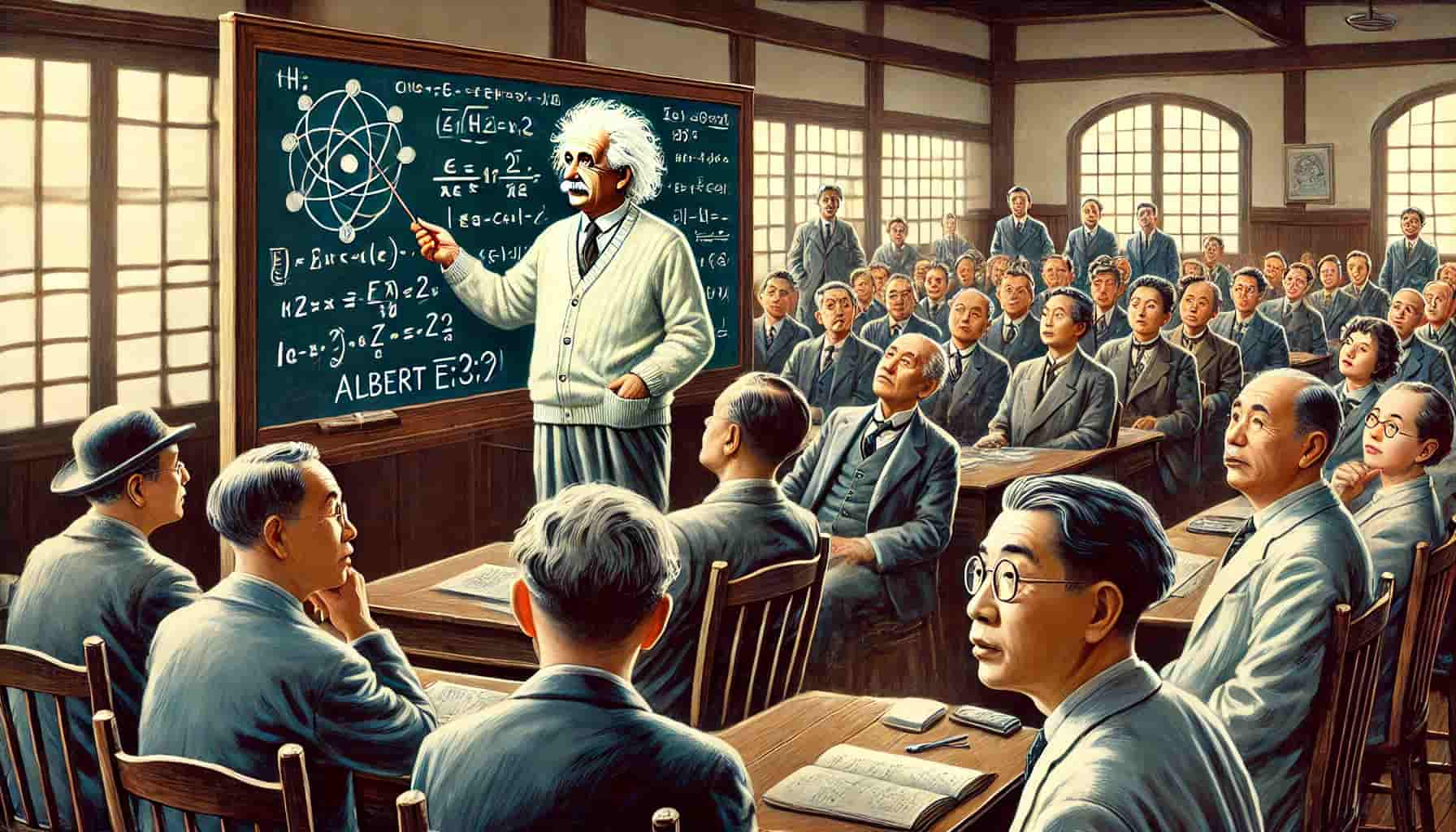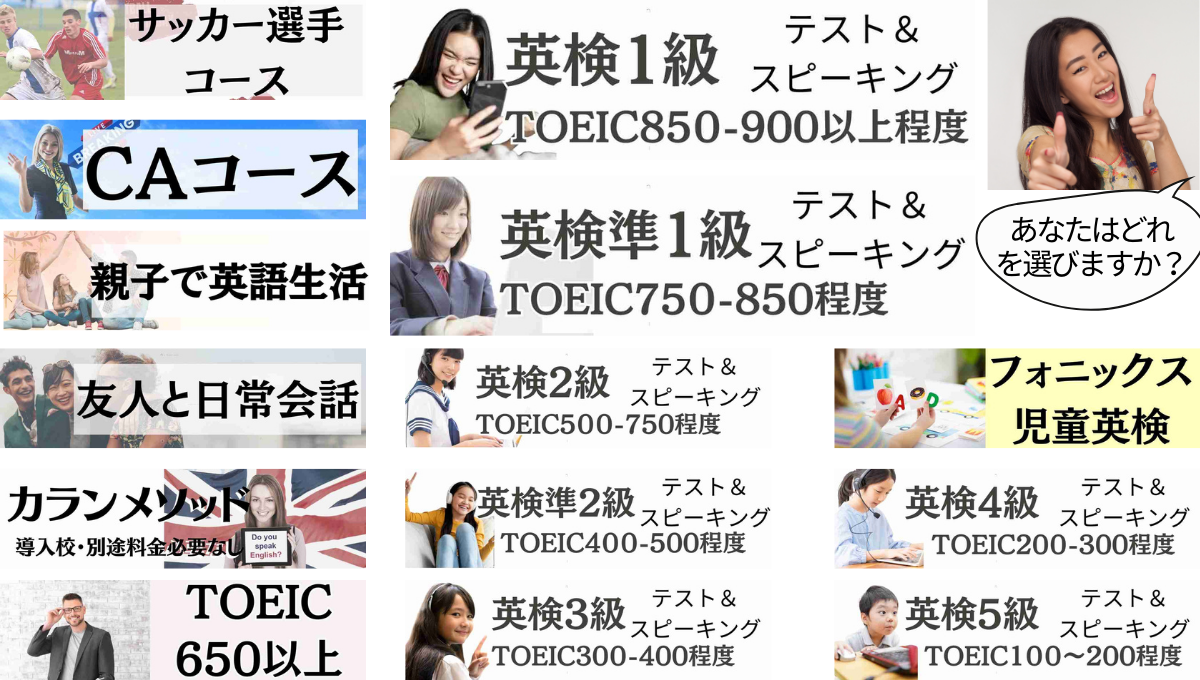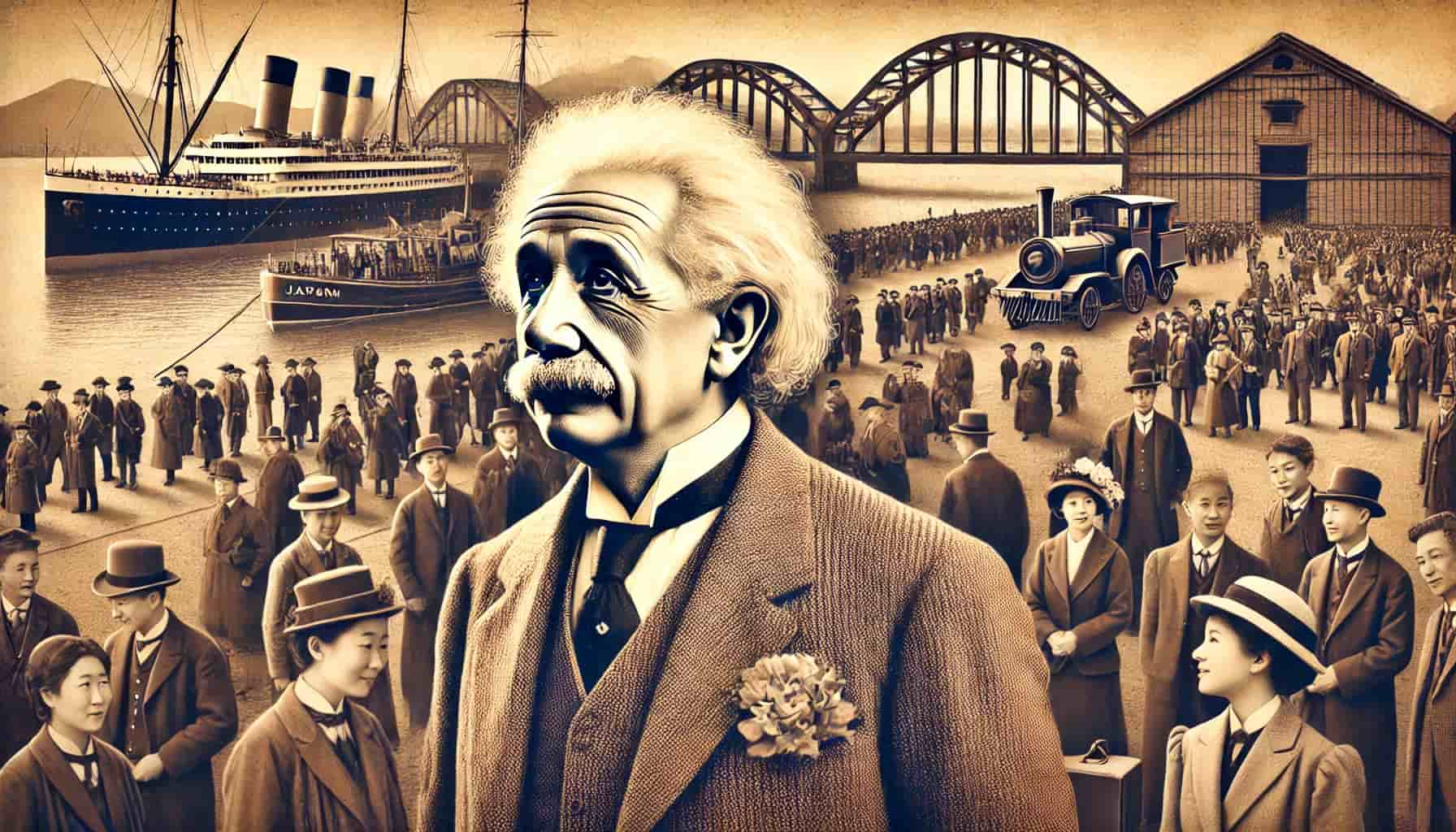Einstein Visits Japan – A Journey Through History
この英語教材のテーマは「実際の出来事でカジュアルな英語を学ぶ」
The theme of this English resource is “Learn casual English through real events.”
Section 1: Einstein’s Arrival in Japan
On November 18, 1922, Dr. Albert Einstein arrived in Japan. This visit was highly significant for him and became a big deal for the Japanese people as well. Einstein was a physicist who was widely respected around the world, and his theory of relativity was mind-blowing for many people. However, the Japanese people were fascinated by his theory, and many lectures were held.
Q1: How did Einstein’s visit impact Japan?
- Sample Answer: Einstein’s visit had a great impact on Japan’s scientific community, and his lectures sparked an interest in science among many people.
Q2: Why was Einstein’s theory of relativity difficult for people at that time to understand?
- Sample Answer: The theory of relativity overturned fundamental concepts of physics, and for many people, it was mind-blowing and very difficult to understand.
Q3: How were Einstein’s lectures received in Japan?
- Sample Answer: Einstein’s lectures were well-received by many people in Japan, enhancing their curiosity and interest in his theories.
Now, let’s talk using idioms.
・Let the students choose one favorite idiom and make an example sentence.
Idioms Explanation:
- A big deal: Something that attracts a lot of interest and attention from many people.
- Example: Einstein’s visit became a big deal in Japan.
- Mind-blowing: Something extremely complex or difficult to understand.
- Example: The theory of relativity was mind-blowing for people at that time.
セクション 1: アインシュタイン博士の来日
1922年11月18日、アルバート・アインシュタイン博士が日本に到着しました。この訪問は彼にとって大きな意味を持ち、日本の人々にとっても大きな話題となりました。アインシュタインは世界中で広く尊敬されていた物理学者であり、彼の相対性理論は多くの人々にとって頭が爆発するような概念でした。しかし、日本の人々は彼の理論に魅了され、多くの講演が行われました。
質問1: アインシュタインの来日は日本にどのような影響を与えましたか?
- サンプルアンサー: アインシュタインの来日は日本の科学界に大きな影響を与え、彼の講演は多くの人々に科学への興味を引き起こしました。
質問2: なぜアインシュタインの相対性理論は当時の人々にとって難解だったのでしょうか?
- サンプルアンサー: 相対性理論は物理学の根本的な概念を覆すもので、多くの人々にとって理解するには頭が爆発するようなほど難しいものでした。
質問3: アインシュタインの講演はどのように受け入れられましたか?
- サンプルアンサー: アインシュタインの講演は日本の多くの人々に歓迎され、彼の理論に対する好奇心と興味を高めました。
イディオムの説明:
- 大きな話題: 非常に関心を集め、多くの人に話題にされること。
- 例文: アインシュタインの来日は日本で大きな話題となりました。
- 頭が爆発するような: 非常に複雑で理解が難しいことを表現する。
- 例文: 相対性理論は当時の人々にとって頭が爆発するような難解なものでした。
Section 2: Einstein’s Interaction with Japanese Culture

During his stay in Japan, Einstein immersed himself in Japanese culture. He visited Kyoto, experienced traditional tea ceremonies, and was fascinated by Japan’s beautiful gardens. He was deeply impressed by the politeness and warm hospitality of the Japanese people, and he began to hold them in high regard. This visit was a special experience for Einstein and deepened his respect for Japanese culture.
Q1: What impression did Einstein have of Japanese culture?
- Sample Answer: Einstein held a deep respect for Japanese culture and began to hold them in high regard due to their politeness and beauty.
Q2: Which place in Japan left the most impression on Einstein?
- Sample Answer: The traditional tea ceremony and gardens in Kyoto were particularly impressive to Einstein, and he was moved by their beauty.
Q3: What cultural activities did Einstein experience during his stay in Japan?
- Sample Answer: Einstein experienced a tea ceremony and was deeply impressed by the richness of traditional Japanese culture.
Now, let’s talk using idioms.
・Let the students choose one favorite idiom and make an example sentence.
Idioms Explanation:
- Hold in high regard: To respect or highly value someone or something.
- Example: Einstein began to hold Japanese culture in high regard.
セクション 2: アインシュタインと日本文化の交流
アインシュタインは日本滞在中、日本文化にも深く触れました。彼は京都を訪れ、伝統的な茶道を体験し、日本の美しい庭園にも魅了されました。彼は日本の人々の礼儀正しさと温かい歓迎を受け、一目置くようになりました。この訪問は、アインシュタインにとっても特別な経験であり、日本文化に対する尊敬の念を深めました。
質問1: アインシュタインは日本文化にどのような印象を持ちましたか?
- サンプルアンサー: アインシュタインは日本文化に対して深い尊敬の念を抱き、日本の礼儀正しさと美しさに一目置くようになりました。
質問2: アインシュタインが訪れた日本の場所で特に印象に残ったのはどこですか?
- サンプルアンサー: 京都の伝統的な茶道と庭園はアインシュタインにとって特に印象的であり、彼はその美しさに感動しました。
質問3: アインシュタインが日本滞在中に体験した文化的な出来事は何ですか?
- サンプルアンサー: アインシュタインは茶道を体験し、日本の伝統文化に触れることでその奥深さに感銘を受けました。
イディオムの説明:
- 一目置く: 誰かや何かを尊敬し、特に高く評価すること。
- 例文: アインシュタインは日本の文化に対して一目置くようになりました。
Section 3: Einstein’s Influence and Subsequent Exchanges

Einstein’s visit laid the foundation for future scientific exchanges between Japan and the West. His lectures inspired many young scientists and ignited their passion for scientific research. His visit helped Japanese scientists to make their presence felt in the international community. Thus, Einstein’s visit was not merely a visit but had a significant impact on the future of science.
Q1: What impact did Einstein’s visit have on Japanese scientists?
- Sample Answer: Einstein’s visit inspired young scientists and helped them make their presence felt in the international scientific community.
Q2: How did Einstein’s visit contribute to scientific exchanges between Japan and the West?
- Sample Answer: Einstein’s visit laid the foundation for scientific exchanges between Japan and the West, strengthening their relationship.
Q3: What impact did Einstein’s visit have on the future of science?
- Sample Answer: Einstein’s visit gave confidence to Japanese scientists, ignited their passion for scientific research, and paved the way for future scientific exchanges.
Now, let’s talk using idioms.
・Let the students choose one favorite idiom and make an example sentence.
Idioms Explanation:
- Make one’s presence felt: To clearly show one’s value or influence.
- Example: Einstein’s visit helped Japanese scientists make their presence felt in international settings.
セクション 3: アインシュタインの影響とその後の交流
アインシュタインの訪日は、その後の日本と西洋の科学交流の基盤を築きました。彼の講演は多くの若い科学者たちにインスピレーションを与え、科学研究に対する情熱を呼び起こしました。彼の訪問は、日本の科学者が国際的なコミュニティで存在感を示す手助けとなりました。このように、アインシュタインの来日は単なる訪問に留まらず、科学の未来に大きな影響を与えました。
質問1: アインシュタインの訪日が日本の科学者たちに与えた影響は何ですか?
- サンプルアンサー: アインシュタインの訪日は若い科学者たちにインスピレーションを与え、彼らが国際的な科学コミュニティで存在感を示す助けとなりました。
質問2: アインシュタインの来日はどのようにして日本と西洋の科学交流に貢献しましたか?
- サンプルアンサー: アインシュタインの来日は、日本と西洋の科学交流の基盤を築き、両者の関係を強化しました。
質問3: アインシュタインの訪日が科学の未来に与えた影響は何ですか?
- サンプルアンサー: アインシュタインの訪日は日本の科学者たちに自信を与え、科学研究への情熱を呼び起こし、将来の科学交流の道を開きました。
イディオムの説明:
- 存在感を示す: 自分の価値や影響力をはっきりと示すこと。
- 例文: アインシュタインの訪問は、日本の科学者が国際的な場で存在感を示す助けとなりました。



免責事項:
この英語教材はChatGPTを使用して生成した内容に手を加えて掲載しています。情報の正確性については十分注意を払っておりますが、誤りが含まれている可能性があります。この教材の利用によって生じた損害について、当方はいかなる責任も負いかねますので、ご了承ください。



